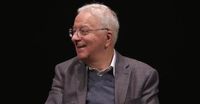Federico Faggin, an Italian physicist and inventor, has been hailed as a transformative figure in the world of technology, particularly for his pivotal role in the development of the microprocessor and the touchpad. Born on December 1, 1941, in Vicenza, Italy, Faggin’s journey from a small Italian town to the heart of Silicon Valley is a testament to innovation and perseverance.
After completing his studies in Physics at the University of Padua in 1965, Faggin began his career at SGS-Fairchild in Agrate Brianza in 1967, where he developed the first process technology for manufacturing MOS integrated circuits. His groundbreaking work led him to Palo Alto, California, where he was invited to work on various projects. During this time, he developed the original MOS Silicon Gate Technology and produced the Fairchild 3708, the first commercial integrated circuit utilizing this technology.
In 1970, Faggin joined Intel, where he collaborated with Ted Hoff and Stanley Mazor to create the world’s first microprocessor, the Intel 4004. This invention revolutionized computing and laid the foundation for the future of technology. Over the next five years, he further enhanced Intel's microprocessor lineup with the 8008 and 8080, which became the precursors to the dominant family of processors used in computers today.
Faggin's journey didn’t stop there; in 1974, he left Intel to co-found ZiLOG, the first company dedicated exclusively to microprocessor production. At ZiLOG, he developed the Z80 microprocessor, which became immensely popular and transformed the market. However, his entrepreneurial spirit continued as he founded Cygnet Technologies in 1980 and later co-founded Synaptics in 1986, a company that specializes in touchpad and touchscreen technology. Under his leadership, Synaptics achieved remarkable success, making touch interfaces ubiquitous in modern devices.
Faggin's contributions to technology have not gone unnoticed. Bill Gates famously remarked, "Without Federico Faggin, Silicon Valley would only be a valley," highlighting Faggin's significant impact on the tech industry. In 2010, he was awarded the National Medal for Technology and Innovation by then-President Barack Obama, recognizing his extraordinary achievements in the field.
Beyond his technical accomplishments, Faggin's life has been marked by personal challenges and a quest for deeper understanding. After winning a long battle for recognition of his authorship of the microprocessor, he began exploring consciousness through the lens of neuroscience. His research aims to design a computer that possesses consciousness, a project that has led him to develop a theory of consciousness based on quantum physics.
Faggin's story is further explored in the documentary "L'uomo che vide il futuro," which aired for the first time on March 28, 2025, on Rai 3. The documentary, produced by ZetaGroup in collaboration with Rai Documentari and RSI Televisione Svizzera, was presented at Montecitorio in the presence of President Lorenzo Fontana, with Faggin participating via video link from the United States.
The film delves into Faggin’s life, showcasing not only his scientific and entrepreneurial achievements but also his personal journey. It illustrates how his experiences have shaped his understanding of both technology and the human experience. Faggin’s unique perspective on consciousness stems from a profound personal experience, where he perceived a beam of light emanating from his chest, leading him to understand love as the essence of human consciousness.
Faggin's contributions extend beyond the microprocessor and touch technology; he has also published several books, with his latest work, "Oltre l'invisibile," released in 2024. His writings reflect his philosophical inquiries and his commitment to exploring the intersection of science and spirituality.
Today, Federico Faggin is not only a celebrated inventor but also a thinker who continues to push the boundaries of human understanding. He resides in Silicon Valley with his wife, Elvia, and their three children, Eric, Marzia, and Marc. Despite his immense success, Faggin remains grounded, emphasizing the importance of family and personal relationships in his life.
As technology continues to advance at an unprecedented pace, the legacy of Federico Faggin serves as a reminder of the power of innovation and the importance of recognizing the human element behind technological progress. His journey from a small town in Italy to the forefront of the tech industry exemplifies the spirit of exploration and the relentless pursuit of knowledge.
Faggin’s story is not just about microprocessors and touchscreens; it is about the quest for understanding and the desire to connect with the essence of consciousness itself. As he continues to explore these profound questions, his contributions to both technology and philosophy will undoubtedly inspire future generations of innovators and thinkers.






